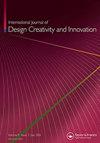我们不能用创造力和创新来玩20个问题并赢得:基于实践的综合研究的必要性
IF 2.5
Q4 ENGINEERING, MANUFACTURING
International Journal of Design Creativity and Innovation
Pub Date : 2022-02-15
DOI:10.1080/21650349.2022.2041889
引用次数: 2
摘要
在工程方面,我们关注的是解决技术挑战带来的各种后果,如社会和环境。在更广泛的领域,我们在类似的约束下用所有可用的手段来应对挑战。这些挑战是系统性的,与其他问题相关联,嵌入在提供限制和影响可能可行解决方案的环境中。在应对挑战时,工程师参与跨学科团队,锻炼不同的推理模式,包括设计、创造力、系统思维和批判性思维。这些模式以不同的方式相互作用,作为一个复杂的系统,导致交付所需解决方案的紧急过程。在某种程度上,我们的挑战,或者我们作为研究人员,试图研究的东西,是“在一个领域中移动的生物(IJDCI编辑委员会,2013)”。虽然这种描述是综合的、整体的,需要从多个角度来研究,但科学已经逐渐变成了专业领域的集合,其中每个领域都进一步专业化,导致难以应对挑战(Reich & Shai, 2012)。这种专业化的主要理由是知识的爆炸及其复杂性,这需要在专门领域具有深厚的专业知识。但现实的风险是,在解决实际问题的必要因素和加强阻碍沟通的竖井之间,人为地建立了界限。《国际设计创意与创新杂志》(IJDCI)的目标是拓宽研究创意和创新的边界,使其超越工程学,成为“在一个领域中运动的生物”。这反映在2013年社论的几位编委会成员的声明中(IJDCI编委会,2013):本文章由计算机程序翻译,如有差异,请以英文原文为准。
We cannot play 20 questions with creativity and innovation and win: the necessity of practice-based integrative research
In engineering, we are concerned with addressing technical challenges with various consequences such as societal and environmental. In broader domains, we address challenges with all available means under similar constraints. The challenges are systemic with interfaces to other issues, embedded in a context that provides constraints and influences what may be a viable solution. In addressing challenges, engineers participate in transdisciplinary teams, exercising different modes of reasoning including design, creativity, system thinking, and critical thinking. These modes interact in different ways, as a complex system, leading to an emergent process that delivers the required solution. In a way, our challenges or what we, as researchers, seek to study, are ‘living things moving in a field (Editorial board of IJDCI, 2013)’. While this description is integrative, holistic, requiring multiple perspectives to study, science has progressively turned into a collection of specialized fields, wherein each, further specialization has been exercised leading to difficulties to address challenges (Reich & Shai, 2012). A primary justification for this specialization has been the explosion of knowledge and its complexity that requires deep expertise in specialized areas. But the risk that materialized is the creation of artificial boundaries between necessary elements of addressing real problems and reinforcing silos that hamper communication. The International Journal on Design Creativity and Innovation (IJDCI) had the goal to broaden the boundaries for studying creativity and innovation beyond engineering as ‘living things moving in a field’. This was reflected in the statements of several editorial board members in the 2013 editorial (Editorial board of IJDCI, 2013):
求助全文
通过发布文献求助,成功后即可免费获取论文全文。
去求助
来源期刊

International Journal of Design Creativity and Innovation
ENGINEERING, MANUFACTURING-
CiteScore
3.80
自引率
27.80%
发文量
15
期刊介绍:
The International Journal of Design Creativity and Innovation is an international publication that provides a forum for discussing the nature and potential of creativity and innovation in design from both theoretical and practical perspectives. Design creativity and innovation is truly an interdisciplinary academic research field that will interest and stimulate researchers of engineering design, industrial design, architecture, art, and similar areas. The journal aims to not only promote existing research disciplines but also pioneer a new one that lies in the intermediate area between the domains of systems engineering, information technology, computer science, social science, artificial intelligence, cognitive science, psychology, philosophy, linguistics, and related fields. The journal covers, but is not restricted to, the following topics: ·Theories on Design Creativity and Innovation ·Cognition of Design Creativity ·Innovative Process ·Inventive Process ·Analogical Reasoning for Design Creativity and Innovation ·Design Synthesis ·Method and Tools for Design Creativity and Innovation ·Representation of Design Creativity and Innovation ·Education for Design Creativity and Innovation ·Concept Generation and Inspiration.
 求助内容:
求助内容: 应助结果提醒方式:
应助结果提醒方式:


